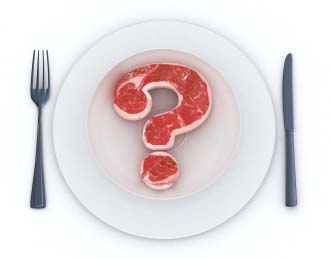
What is “a vegetarian”?
An explanation of the term “vegetarian” is necessary as there is currently some confusion. People nowadays sometimes talk about “demi-vegetarians”, “semi-vegetarians”, “pollotarians”, “flexitarians”, and “pescetarians”..... but from an ethical perspective, someone is either a vegetarian or not.

Very simply, it is a person who does not eat the meat of animals including poultry, game, fish, shellfish and crustaceans, and slaughter by-products (such as fish oils, gelatine, or animal rennet derived from a calf’s stomach).
Some people call themselves “vegetarian” but still occasionally eat fish or poultry, for example; they are therefore not vegetarian in the dictionary sense of the word, nor by our definition. We think it is important to be clear about this issue; being vague or misleading can cause confusion and trigger understandable accusations of hypocrisy regarding ethical considerations.
Many people, sooner or later, choose to go a step further and become what we might call “strict vegetarians”. In addition to the above, a strict vegetarian will not eat battery eggs (or any food containing them) and will not wear or use leather, nor any other products from dead animals such as fur or bone. We suggest that a strict vegetarian is the most ethically responsible and free from hypocrisy.

“I am vegetarian, so I don’t have clothes, shoes or bags made from leather or suede or any animal products.”
Leona Lewis, singer
Leona Lewis, singer